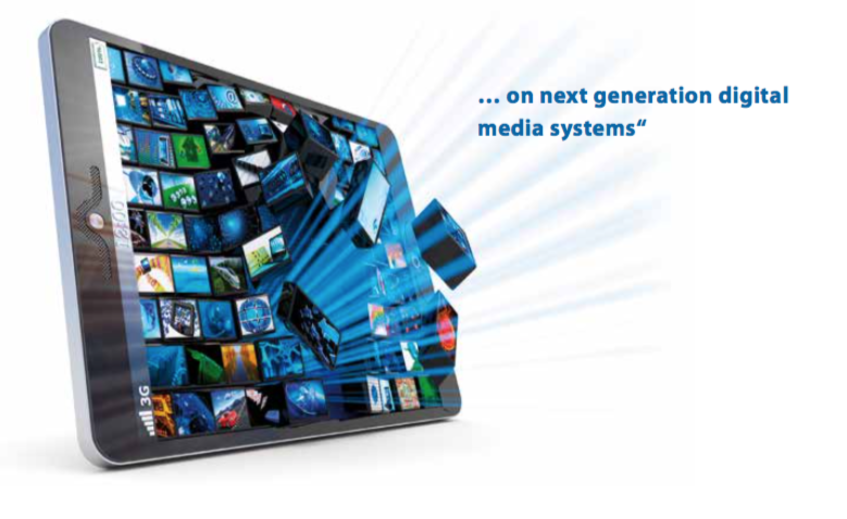About Us

About Us
The research group Multimedia Information Systems (MIS) deals with various aspects of the conception, design, and implementation of multimedia information systems and information security management.
Today, multimedia content is used everywhere – in conventional computing environments and applications as well as in more recent contexts, such as mobile computing, digital libraries, or teaching and learning environments. The spread of multimedia content in our everyday life can be seen as a very successful example of the progressive digitization of our world.
The research activities consist of the activities of the two major topic areas represented by Prof. Klas and Prof. Quirchmayr and comprise
- multimedia information systems, in particular on techniques and methodologies for multimedia semantic content management, multimedia environments in the context of Web technology and blockchain systems, and
- specific topics in the area of information security management, and related legal aspects.
The group was/is involved in several national and international projects. Regarding multimedia information systems topics - among internal research project activities - the group participates in nationally funded projects in the FFG IT programs, the FWF-program, and in internationally EU-funded projects. Regarding information security, the group participates in several nationally funded projects in the FFG KIRAS framework, in EU H2020 and in ERASMUS+. The group also collaborates with other groups of the Faculty, contributes to the BlockchainSci-Lab: Blockchain Science, Technologies & Applications Lab, an Advanced Laboratory at the Faculty of Computer Science, and contributes to knowledge transfer by collaborating with the Steinbeis-Transferzentrum Informatik.univie (Steinbeis Transfer Center Informatik.univie).
For some more details on recent research impact please see also the description of Recent Research Achievements.
Currently, we plan to focus on various aspects of your research activities:
- Blockchain-based multimedia content management, in particular on techniques on how to extend existing approaches of blockchain systems with dedicated support for content management. Current work focuses on the extension of the traditional architecture of blockchain systems with additional layers for supporting a graph-based representation of content stored on the chain and supporting indexing and querying such content by means of Web-based query languages. A first prototype has been implemented based on an RDF representation of content and providing for querying by means of SPARQL. In addition, blockchain components like the virtual machine for executing smart contracts may be separated from the traditional components and placed in the cloud, offering dedicated smart contract execution services for a blockchain systems and its applications. First experimental implementations illustrate already the feasibility of this approach.
- Developing techniques and a scalable system architecture for automatically detecting conflicting data/information on the Web. This requires, in particular, to look into the architecture for a scalable, Web-infrastructure-based detection service that should become available as part of the well-established Web-infrastructure. The work is based on the results of a PhD thesis which shows the feasibility of the concept in general. Substantial extensions to this approach will address the set up a generic framework based on basic principles of edge computing (e.g., using concepts like functions available in Azure or AWS Lambda). This may then also allow integrating specific blockchain-based functionality for the purpose of proofing validity of conflicting data detected on the Web, which should help create a more trustful and transparent setting for detecting and recognizing conflicting data/information on the Web.
- Specific topics in the area of security management, and relevant legal aspects: Based on current and submitted national and EU project participation, critical infrastructure protection and security awareness will continue as one of the focus areas. Supply chain security and related risk management topics will be addressed from an information security and a legal perspective. The submission of further national project proposals will lead to an even closer cooperation with leading research concentrations, such as AIT (Austrian Institute of Technology) and SBA (Secure Business Austria), especially in the area of cascading effects modelling in critical infrastructures, cyber exercises and cyber ranges. The results of these planned projects will also be used to provide a basis for starting new PhD projects. Information security analysis and awareness creation will be addressed together with primarily European partners. Within the ASEA UNINET framework an even closer cooperation with Thai universities will focus on natural language analysis and information integration for disaster management. A long-established partnership with Australian universities and institutions in the field of information management and security will continue, if possible in the form of participation in joint cooperative research centers (Australian National CRC Program).
The scientific work of the research group contributes to the newly established overall research foci Data Science and Intelligent, Distributed, and Secure Systems, both established as part of the strategic plan of the University at the Faculty of Computer Science.
Solutions envisaged by the group include aspects ranging from the development and formal description of models and concepts to the prototypical implementation of systems.
A wide range of applications allows for the evaluation of concepts, models, and prototypes, and for the necessary reflection of the chosen approaches:
- Digital libraries such as Europeana, the European digital library, serving as an access point to several millions of digital books, paintings, films, museum objects, and archives;
- Mobile applications for smartphones and tablet-based systems as innovative multimedia systems for end users and businesses;
- Web-based media repositories, such as YouTube, Vimeo, Picasa, Flickr, Instagram, Twitter or Linked Open Data, etc.
The members of the research team publish their work in inter- national conference-proceedings and journals. They regularly participate in national and international research and development projects (FWF, FFG, EU, industry) as well as in technology transfer activities providing a bridge between science and industry. True to the motto “research that matters”, the research group strives for having an impact on practice.
In accordance with this objective the group has also been involved in setting up spin-off companies.
